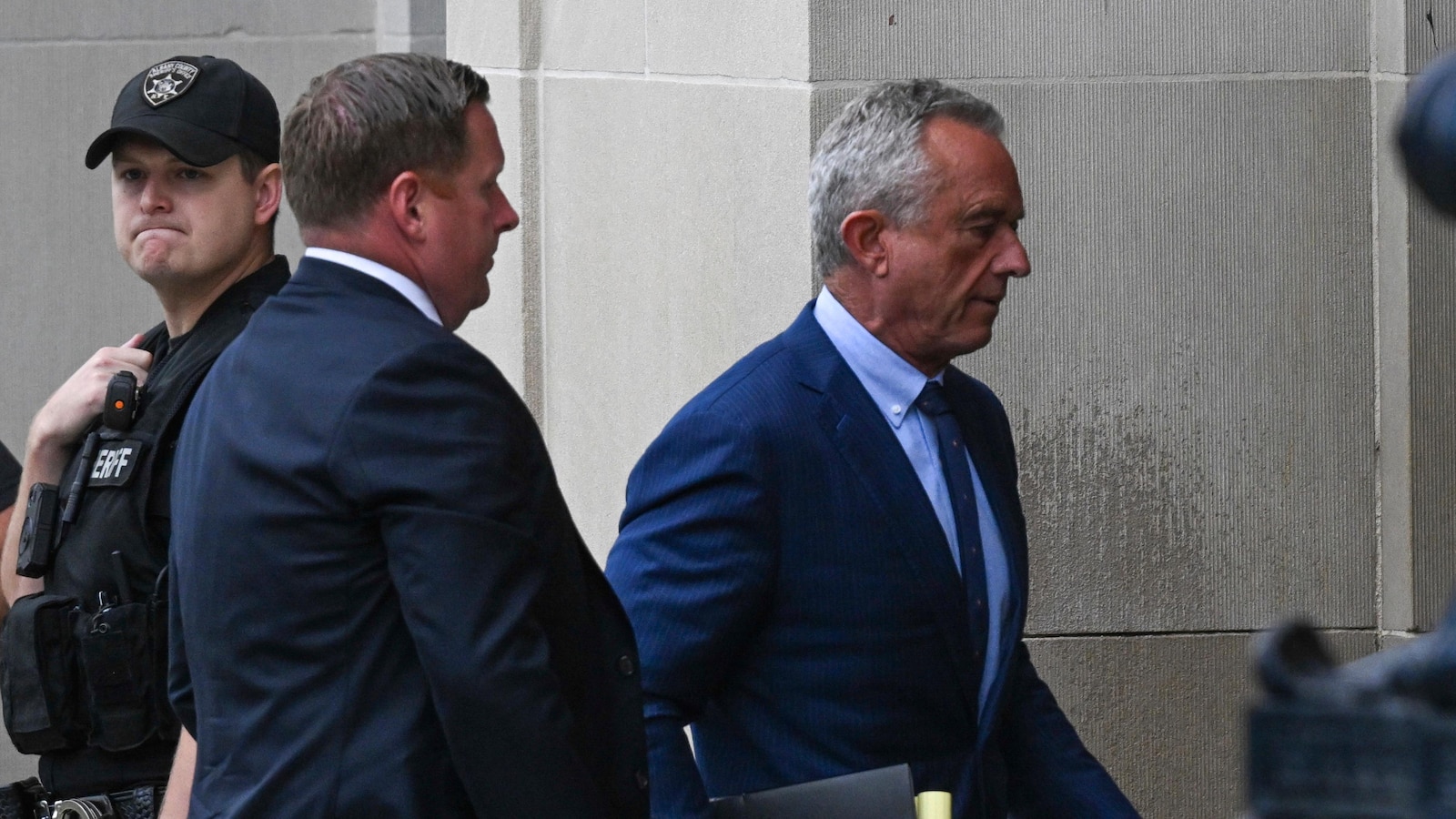
ALBANY, N.Y. — The woman who owns the suburban New York property independent presidential candidate Robert F. Kennedy Jr. claims as a residence said in court Tuesday that he pays $500 a month for a room.
The testimony comes as Kennedy fights a lawsuit claiming his New York nominating petition listed a residence in New York City’s well-to-do northern suburbs while he has actually lived in Los Angeles since 2014. The suit seeks to invalidate his petition, keeping him off New York’s ballot in November.
Barbara Moss has owned the property in Katonah since 1991 and has lived there with her husband, Timothy Haydock, an old Kennedy friend, according to court papers.
Under questioning from Kennedy attorney William F. Savino, Moss told the court in the state capital of Albany that Kennedy was her tenant who pays $500 a month for a room. There is no written lease, she said.
“As long as Bobby needs the room, it will continue,” she said “That was our understanding.”
Moss identified photos she took recently of the room showing Kennedy’s clothes in the closet and dresser drawers. And she testified that he regularly received mail at the house.
A lawyer for the petitioners, John Quinn, noted that the first payment to Moss was made May 20, the day after a New York Post story casting doubt on Kennedy’s claim that he lived at that address. And Moss affirmed that initial payment was for $6,000, an amount equal to a year’s back rent.
The lawsuit claims Kennedy “at most only visited” the residence about 40 miles (65 kilometers) north of midtown Manhattan.
Kennedy’s lawyers have maintained that the 70 year old, who led a New York-based environmental group for decades and whose father was a New York senator, has lived in the state since he was 10, and has only moved “temporarily” to California for the career of his wife, “Curb Your Enthusiasm” actor Cheryl Hines.
Kennedy has said in court papers that he moved to the Katonah address after being asked last year to leave a nearby home where he had been staying. That account was disputed in court on Monday by the owners of that house, who said Kennedy was never a tenant. One of Kennedy’s cousins, Stephen Smith Jr., also testified remotely, saying he once had dinner in a California home the candidate shares with Hines.
The case was brought on behalf of several New York voters by Clear Choice PAC, a super PAC led by supporters of Democratic President Joe Biden. A judge is set to decide the outcome without a jury.
A recent trial questioning the residency status of Robert F. Kennedy Jr. has taken an interesting turn as a homeowner testified about renting a room to him in New York. The trial, which is seeking to determine whether Kennedy is a legal resident of the state, has garnered significant attention due to his high-profile status as a member of the Kennedy family and his involvement in environmental activism.
The homeowner, who has chosen to remain anonymous, testified that Kennedy rented a room in their home in New York for several months. This testimony could potentially have significant implications for the trial, as it raises questions about Kennedy’s residency status and whether he truly considers New York his primary residence.
Kennedy has been under scrutiny for his residency status for some time now, with critics alleging that he spends more time at his properties in California and Massachusetts than he does in New York. If it is determined that he is not a legal resident of the state, it could have serious consequences for his eligibility to run for political office or hold certain positions in government.
The testimony from the homeowner adds a new layer of complexity to the case, as it provides firsthand evidence of Kennedy’s presence in New York. It remains to be seen how this testimony will impact the outcome of the trial and whether it will ultimately prove decisive in determining Kennedy’s residency status.
In the meantime, the trial continues to attract attention from both supporters and detractors of Kennedy, with many eagerly awaiting the final verdict on this contentious issue. Regardless of the outcome, it is clear that this case has sparked a heated debate about the importance of residency requirements for public figures and the potential consequences of not meeting them.


